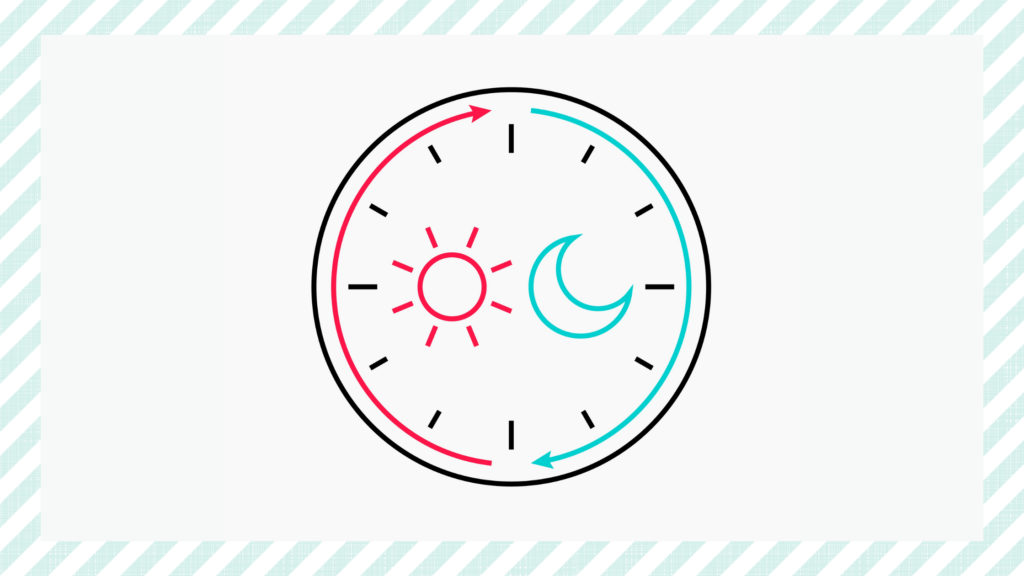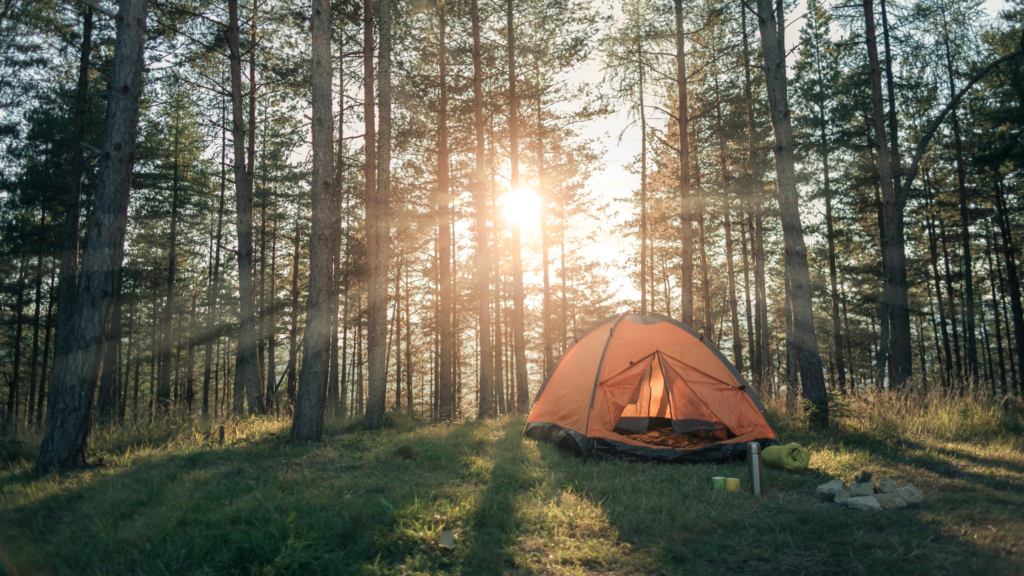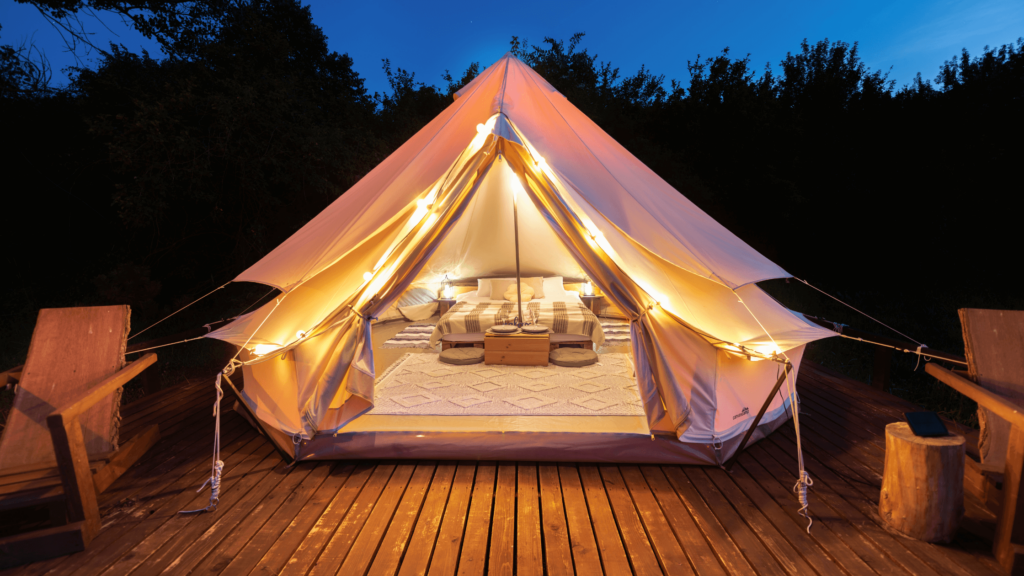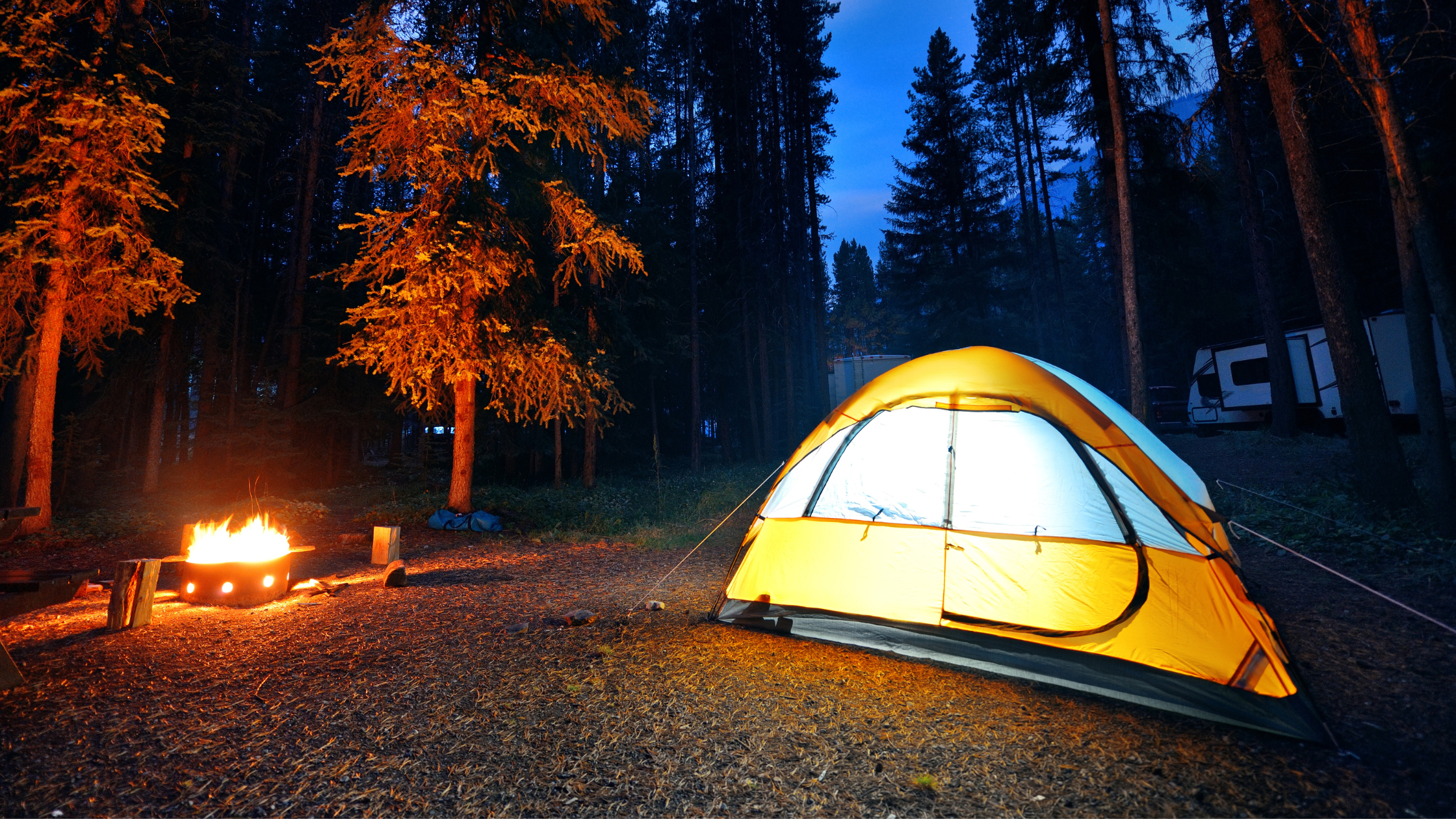In an ideal world, you’d fall asleep effortlessly each night and wake up rested and alert the next morning. Unfortunately, the real world includes smartphones, alarm clocks, stimulants, and stress—conditions that aren’t exactly conducive to a good night’s sleep. To escape the cycle of late nights, shift work, and one too many coffees, try resetting your sleep by going camping. The combination of fresh air, natural light, and exercise might be just what your body needs to get back on track.
Circadian rhythm 101

Before diving into how camping can help reset your sleep, it’s helpful to understand the basics of the sleep-wake cycle.
Your body has an internal clock that controls when you wake up in the morning and when you start to feel sleepy in the evening. This sleep-wake cycle is part of your circadian rhythm, a cycle that takes place in your body over a 24-hour period.
But unlike your bedside clock or the alarm on your phone, your circadian rhythm isn’t set manually—your body uses cues from your environment to determine your sleep patterns.
Waking up
Morning light resets your biological clock. The sunrise signals that it’s time to wake up, and your body responds in several different ways, including releasing serotonin and cortisol.
- Serotonin. Often known as a feel-good hormone, serotonin can affect your mood, digestion, and sleep. Bright morning light triggers your body to release serotonin, helping you transition from sleep to wakefulness and prepare for the day. You’ll also hear serotonin called the “happy hormone.”
- Cortisol. Although we most often associate cortisol with stress, it is essential to day-to-day functions. Cortisol levels typically peak 30 minutes after waking and help your body feel alert.
Studies show that absorbing bright light in the morning can help increase cortisol levels, suppress melatonin (a hormone that makes you feel sleepy), and help you feel more alert, even after a long night.
Going to sleep
As the sun sets in the evening, your body responds to lower light levels by releasing a hormone called melatonin. Melatonin is often purchased as an over-the-counter sleep aid, but your body also produces it for free under the right conditions.
Essentially, your body functions as though it is solar-powered. When the sun rises, it recharges your body to help you wake up, feel alert, and take on the day. When the sun goes down, you begin to power down, too.
It really is a beautiful, efficient system—or it was before Thomas Edison came along.
The dark side of artificial light
When the lightbulb was invented, it changed everything. For the most part, these changes were positive, but we didn’t anticipate that exposing our bodies to artificially bright light would mess with circadian rhythms.
When you keep lights on late into the evening (or use devices that emit blue light), your body never gets the signal to start releasing melatonin. Without melatonin, you might not naturally feel sleepy.
Similarly, spending most of your time indoors means missing out on the bright morning light that tells you to wake up. Instead of opening your eyes to early morning sunshine, boosted by serotonin and cortisol, you wake up bleary-eyed and, in the dark, jolted into consciousness by a blaring alarm clock.
How camping can reset your circadian rhythm

Studies have shown that camping can be an effective way to pause the effects of a modern lifestyle, reset your circadian rhythm, and bring you back into alignment with your natural sleep-wake cycle. Several factors help make this change possible.
Exposure to daylight
It’s much easier for daylight to find you when you’re camping—early morning sunlight filters through tent walls and streams into camper windows. When you stumble outside and make coffee by the campfire, your body is exposed to that bright early morning daylight. Natural light first thing in the morning can help reset your circadian rhythm and remind your body that it’s time to wake up.
Falling asleep in darkness
Similarly, being outside as dusk falls can help your circadian rhythm by letting your body know it’s time to start winding down and release melatonin. Letting your eyes adjust to dim light without interference from lightbulbs can help you fall asleep earlier and get your sleep schedule back on track.
Reduced screentime
Getting out into the great outdoors often involves limited internet access and cell service and encourages disconnection from screens. Without the blue light from digital devices, especially at night, your body can reset and find its natural rhythms again.
Camping doesn’t have to involve a tent

If you don’t enjoy traditional camping, there are many different ways to enjoy its benefits without a tent or a sleeping bag. From sleeping under the starry sky to tucking yourself into the most elaborate trailers and RVs, camping can be as simple or luxurious as you make it.
Tent-free
In climates where weather and temperature aren’t an issue, camping can be as simple as a hammock strung between two trees or a sleeping bag spread out on the ground. Sleeping under the stars is an incredible experience and lets you get the most out of a natural setting. If you’re going tent-free, make sure you check weather reports and educate yourself about wildlife in the area.
Classic tent camping
Tents are what come to mind when you talk about camping, and they’re popular for a reason. Tents are lightweight and can be set up almost anywhere, offering privacy and protection from insects and inclement weather. From basic one- or two-person tents to those with vestibules and multiple rooms, the choices are endless.
Glamping
Glamorous camping, or glamping, is a fancier way to spend time in a tent. It typically involves a large canvas tent on a raised platform, equipped with a bed frame, mattress, bedding, and often a few other modern conveniences like lights, climate-controlled environments, and sometimes even plumbing.
RVs, motorhomes, and trailers
These camping styles bring the comforts of home right to the great outdoors. Whether you’re towing a trailer or driving an RV, these vehicles typically offer areas for sleeping, eating, showering, and cooking. Camping with an RV or trailer will mean you’ll often find yourself in locations that are less remote and more populated, but they are an incredible way to get the best of both worlds. To get the benefits of sleep reset, make sure to spend lots of time outside and use artificial lights as little as possible.
How to maintain better sleep cycles
Although camping is great for resetting your circadian rhythm, you will eventually have to pack up the campsite and go back home. To continue reaping the benefits of camping long after you’ve returned to indoor plumbing, try to adopt the following habits—your sleep-wake cycle will thank you!
Be active
Studies show that physical activity can help you sleep better and stay asleep longer. Even without wooded trails to trek along, exercising for at least 30 minutes daily will improve your sleep.
Limit screen time (especially in the evening)
Remember that dim light is one way your body knows it’s time to start releasing melatonin and preparing for sleep. Studies show that staring at the bright screens of TVs, smartphones, and tablets in the evening can confuse that process, throwing off your circadian rhythm and disrupting your sleep. To avoid this, experts recommend avoiding screens for at least two hours before bed. If it’s a must, consider investing in blue light-blocking glasses.
Buy blackout curtains or blinds
Your daily schedule might not align with sunrise and sunset times, which can wreak havoc on your system. If you’re doing shift work or have a schedule that requires waking up later in the day, natural daylight might actually be working against you. Installing blackout blinds can block morning light, allowing your body to sleep longer. In the evening, blackout blinds can simulate the kind of dark environment your body needs to transition to sleep.
Exposure to morning and evening light
Regardless of what time you get up in the morning, experts say that going outside for at least 10 minutes as soon as you wake up can help your mood, your sleep, and your circadian rhythm. Allowing your body to respond to natural cues like bright daylight will help you reset your sleep cycle and start the day alert and awake. As you approach your bedtime, try dimming the lights to mimic the natural loss of light that occurs towards the end of the day and help your body get ready to sleep.
Resetting your sleep with a camping trip is a great way to get your circadian rhythm back on track, allowing you to reap the benefits of an alert body and well-rested mind.
Want more like this? Subscribe to our weekly newsletters for more health and wellness tips and tricks.


